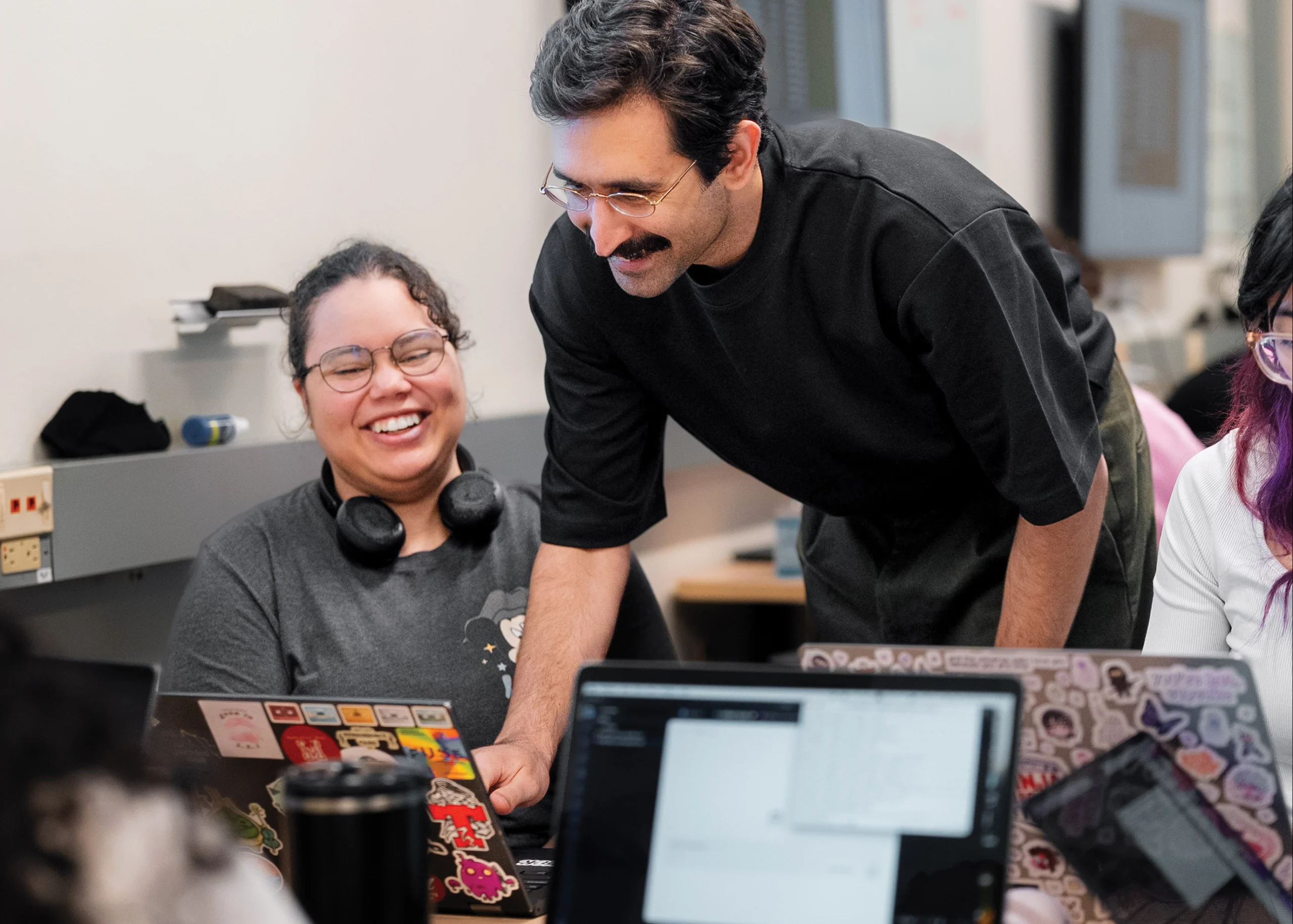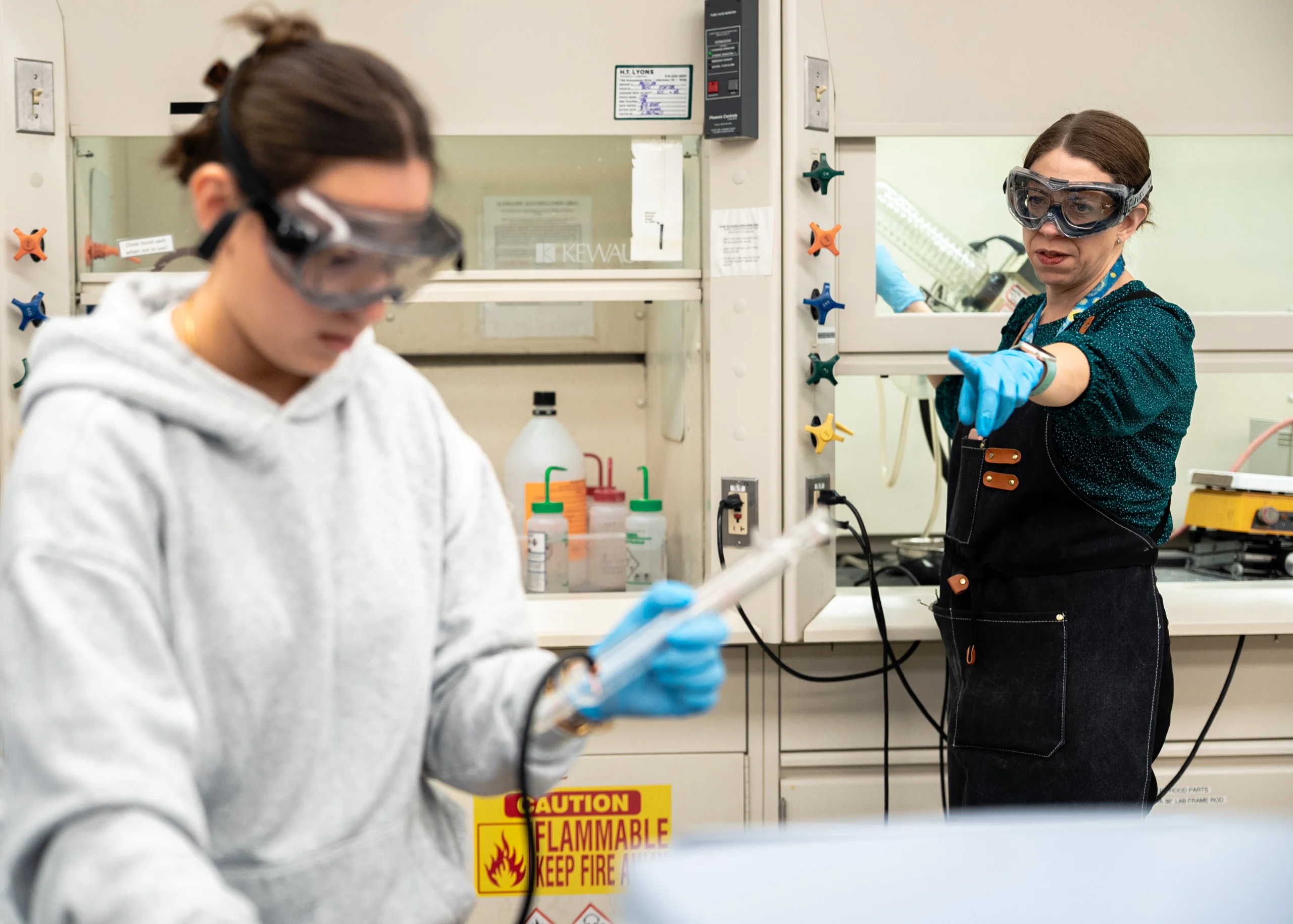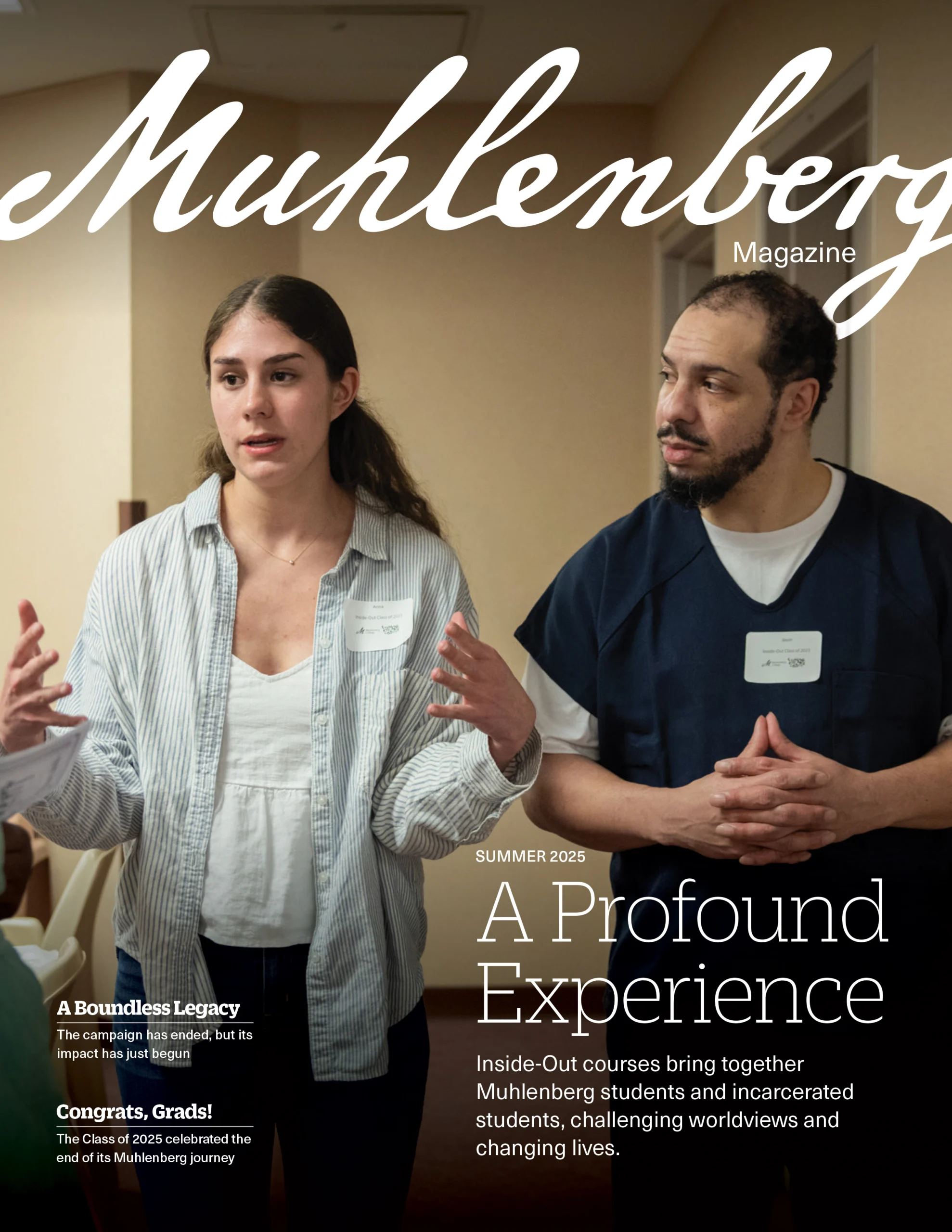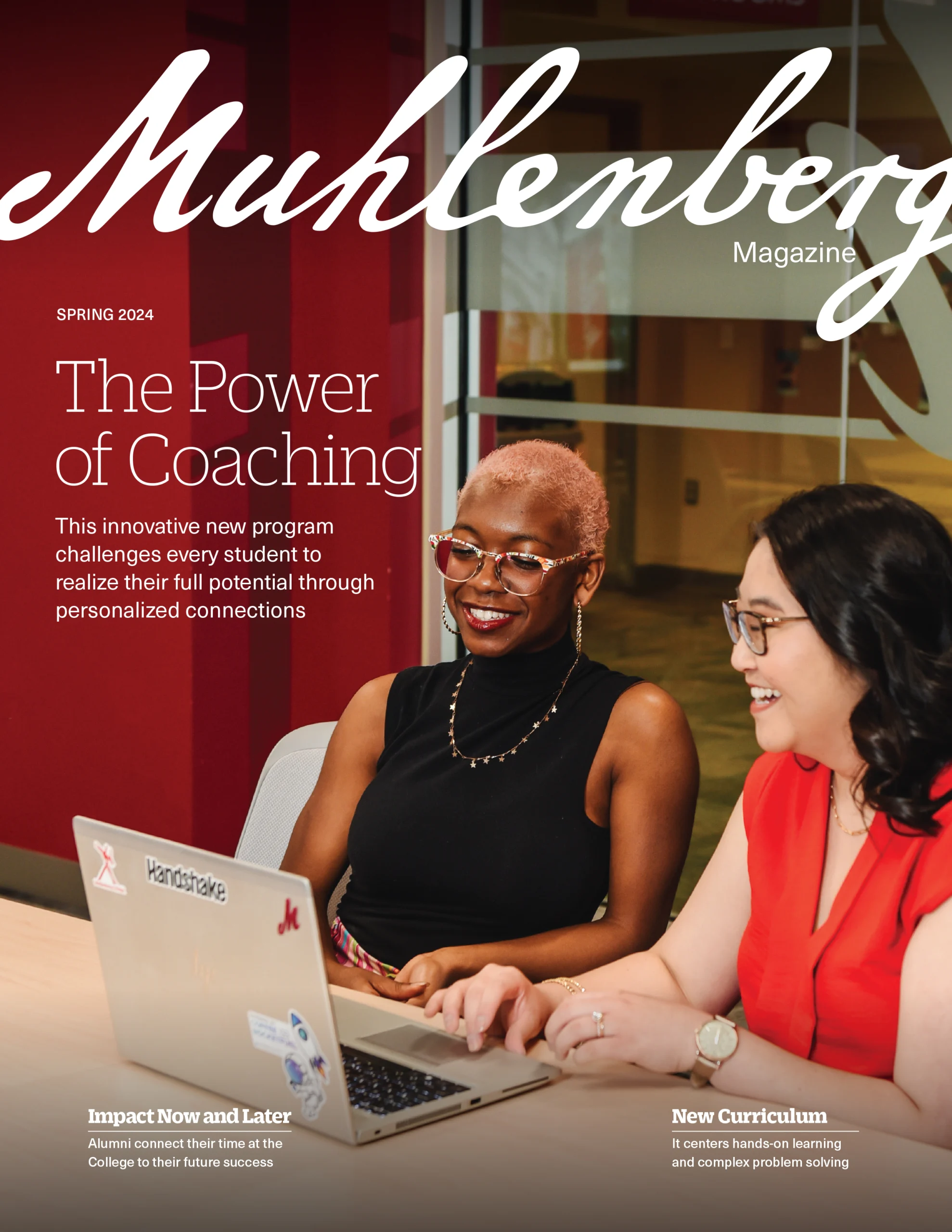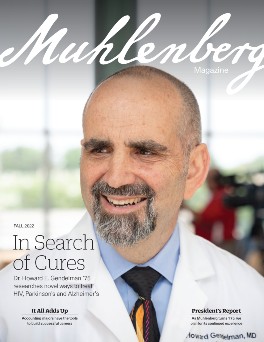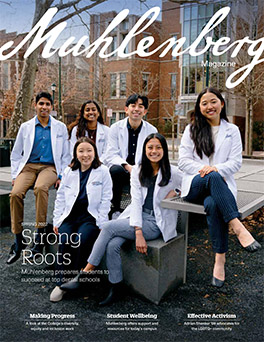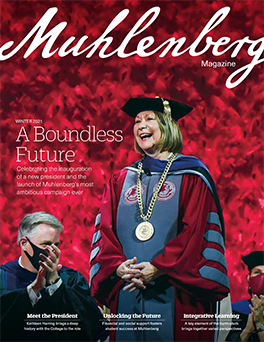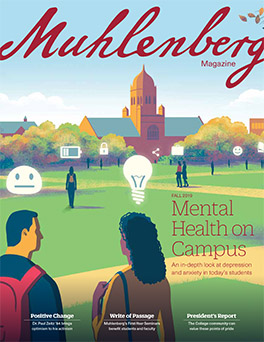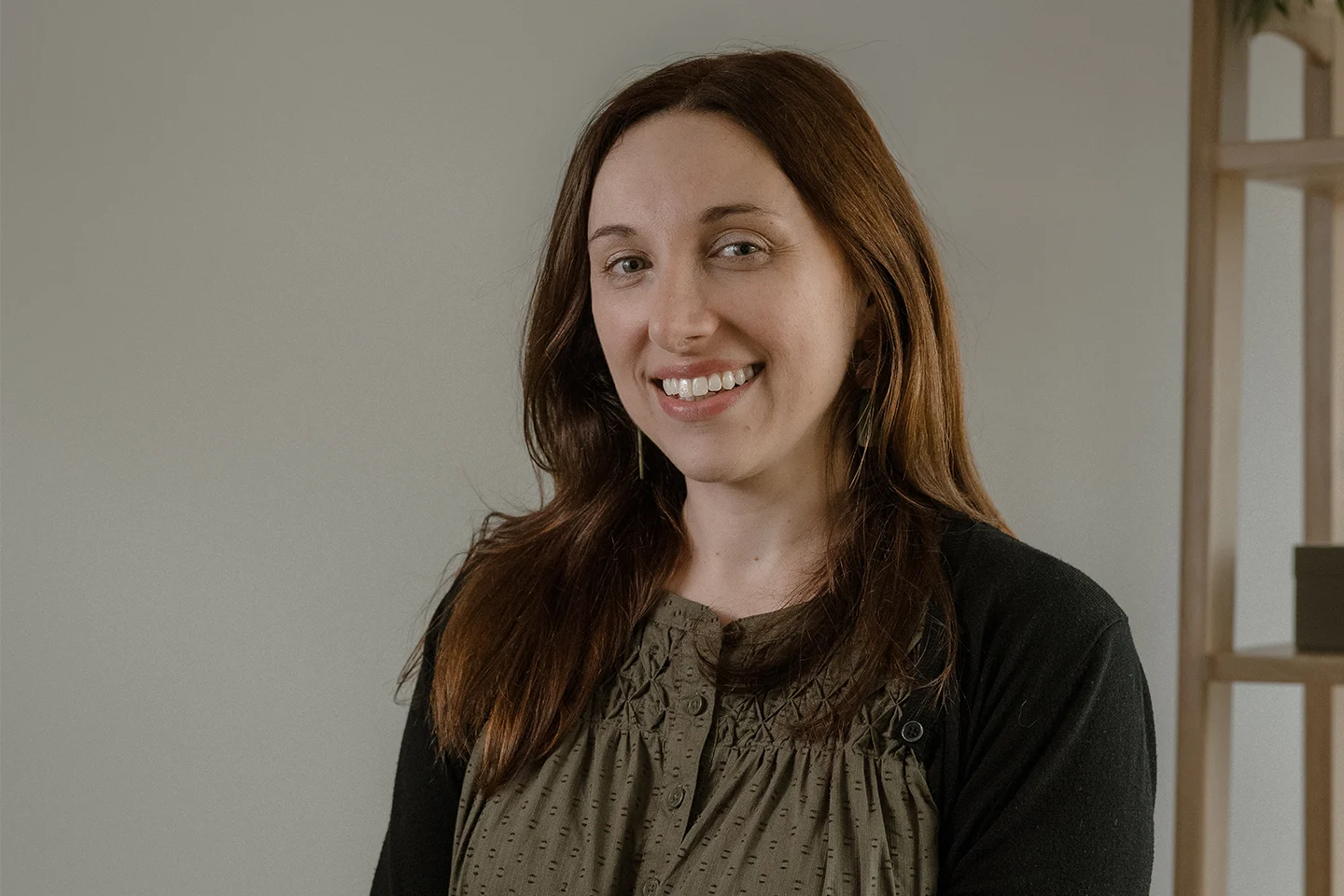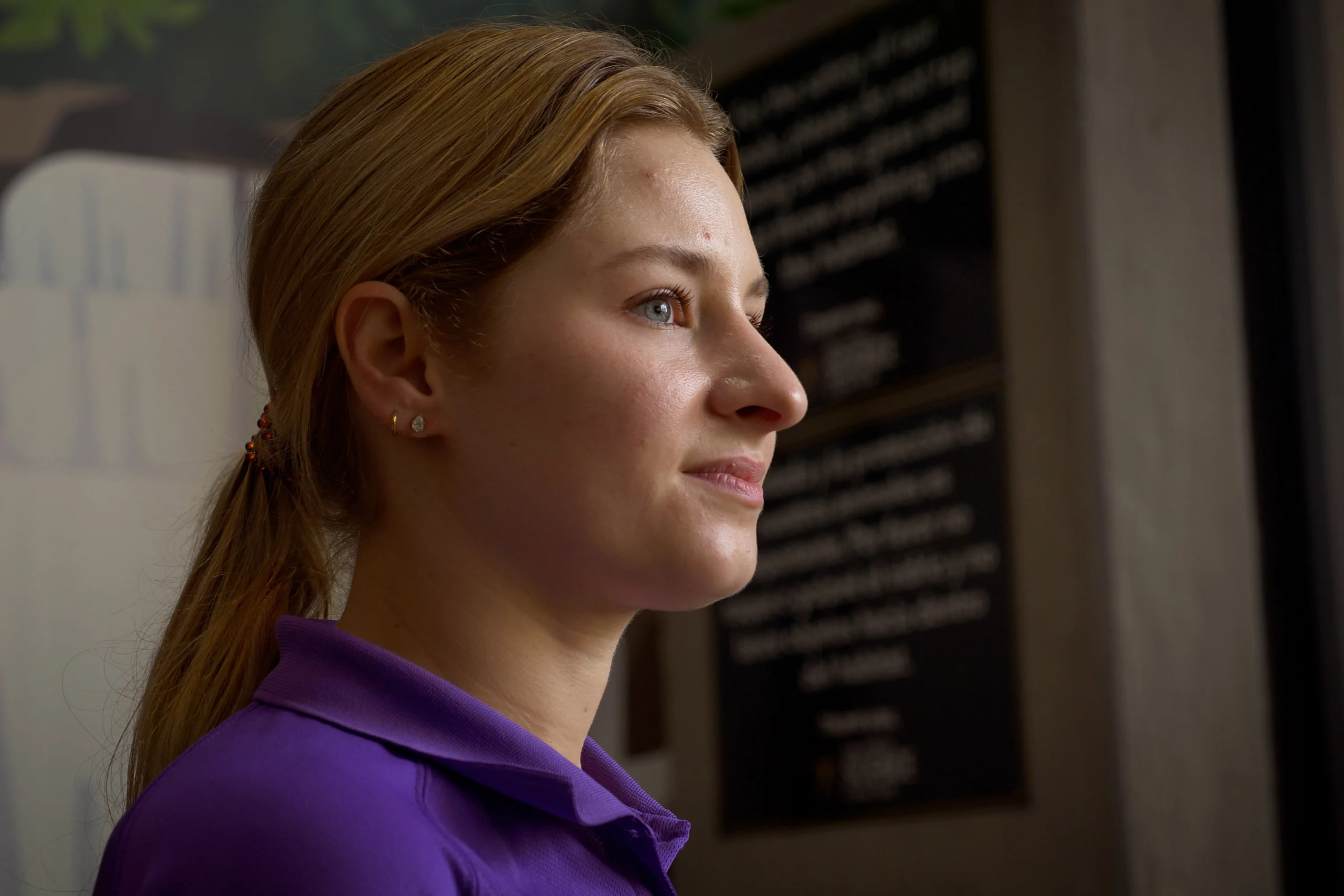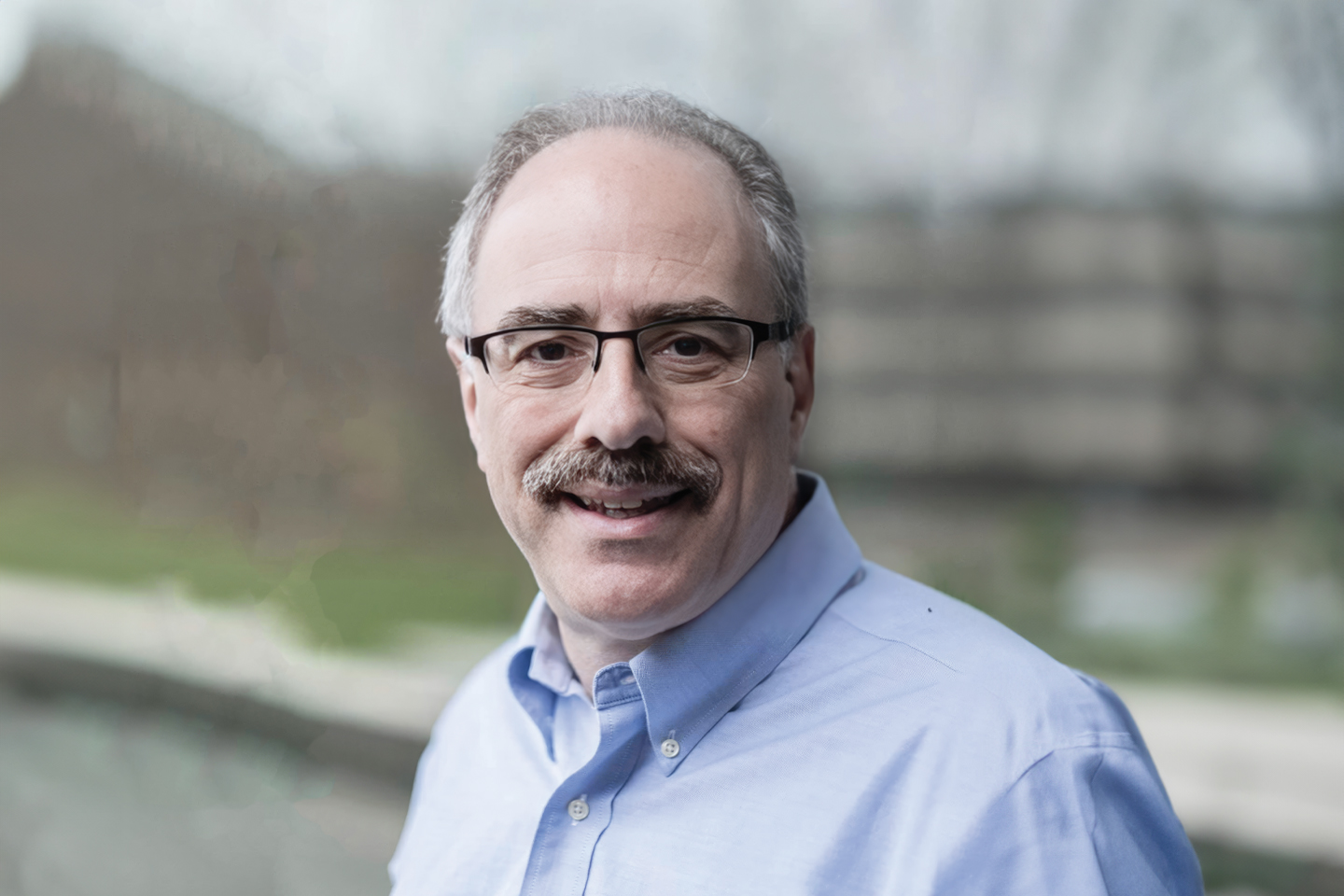
Dr. Leonard Zon ’79
FROM Conducting research throughout his time at Muhlenberg
TO Election to the National Academy of Sciences for his research using zebrafish as a human disease model
In his lab within the Harvard Stem Cell and Regenerative Biology Department, Dr. Leonard Zon ’79 keeps tank after tank after tank of zebrafish — about 300,000 fish in all. Zon, among the earliest adopters of the zebrafish model to study human disease, is well known for his groundbreaking work with the species: His peers elected him to the prestigious National Academy of Sciences in 2022 and, since 1993, he’s been a Howard Hughes Medical Investigator, an honor reserved for the top 300 scientists in the country.
The inch-and-a-half-long fish, named for their black-and-white stripes, multiply rapidly, with each mother laying 200 eggs each week: “So if you’re interested in genetics, and how blood diseases occur in families, and how brothers and sisters relate to each other, it’s a fantastic system,” says Zon.
Listen to a more extensive interview on the alumni podcast 2400 Chew.
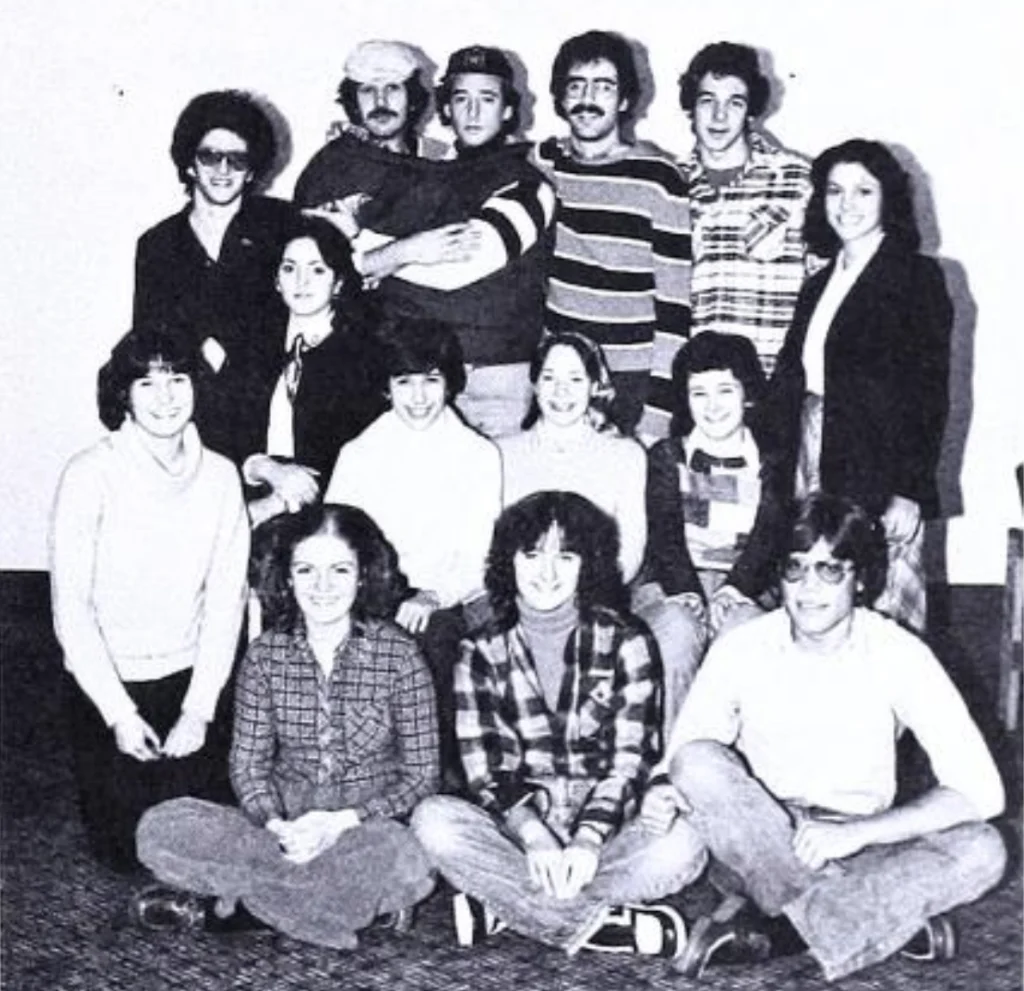
Zon has been interested in those topics since he was a first-year medical student at Thomas Jefferson University, when he heard a lecture from a famous hematologist on the faculty and was inspired to join his lab. Fortunately, Zon had amassed four years of undergraduate research experience at Muhlenberg, where he was a chemistry major and natural science minor, and had conducted summer research at Roswell Cancer Institute in Buffalo, New York, before senior year.
His lab also utilizes zebrafish as a cancer model (for melanoma) in addition to blood diseases: “We’ve been able to take five compounds that we found by adding them to the water of the fish and bring them into clinical trials to help treat human patients,” he says.
“The ability to translate research into potential treatments is one of the nice parts about being a physician-scientist.”
—Dr. Leonard Zon ’79
The ability to translate his research into potential treatments is “one of the nice parts about being a physician-scientist,” he says. Zon currently spends about 10 percent of his time seeing patients, primarily at Boston Children’s Hospital, where he directs the stem cell program, and 90 percent in the lab.
Zon is also the Grousbeck Professor of Pediatric Medicine at Harvard Medical School, which honored him last fall by announcing that a chair position in regenerative medicine would be named for him upon his retirement — whenever that happens. Zon remains passionate about the work he’s doing, not only the science but also the mentorship he’s able to offer the group of about 30 postdoctoral fellows, Ph.D. students and technicians that staff his lab.
His close relationship with his lab “family” resembles the relationships he built on campus as an undergrad, where he made lifelong friends and set the foundation for his distinguished career: “The individual education [at Muhlenberg] was just great,” he says. “Professors really care at Muhlenberg. They really, really want you to succeed.”
This profile is part of the feature “Your Future Starts Here.”


